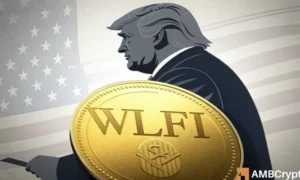Japan’s Crypto Tax Overhaul: Paving the Way for ETFs and Investor Participation
Japan’s Financial Services Agency (FSA) is poised to significantly reshape the taxation rules governing digital assets, creating a more favorable environment for cryptocurrency investments. By proposing reforms to incorporate cryptocurrencies under the Small Investment Tax Exemption System (NISA), the FSA aims to transform Japan into an “asset management nation.” This change is expected to attract greater participation from both individuals and corporations, crucial for enhancing the country’s financial markets.
Current Taxation Landscape for Cryptocurrencies
Presently, cryptocurrency gains in Japan are categorized as “miscellaneous income,” which is subjected to progressive tax rates that can escalate up to 55% with local levies. This stringent tax regime has been criticized for being excessively punitive compared to equities and bonds, which benefit from a flat tax rate of 20%. The proposed reforms would align crypto earnings with this lower rate, enabling investors to carry forward losses for up to three years. Such measures could alleviate financial burdens on traders and ultimately stimulate greater investment in cryptocurrencies.
Historical Context Influencing Reform
Japan’s cautious approach to cryptocurrency regulation is heavily influenced by its tumultuous history with digital assets, particularly the infamous collapse of Mt. Gox in 2014, which severely undermined public trust. Since then, Japan has implemented some of the strictest regulations in the world focused on investor protection. The recent economic challenges following a nationwide cryptocurrency market crash necessitate these proposed reforms, aiming to bolster investor confidence and mitigate future risks.
Potential for Cryptocurrency ETFs
These tax reforms also set the stage for classifying cryptocurrencies as financial products under the Financial Instruments and Exchange Act (FIEA). Such a classification would align digital assets with the same governance as traditional financial products, enabling regulatory bodies to enforce insider trading laws, set disclosure requirements, and enhance investor protections. Although Japan has yet to authorize a spot Bitcoin ETF, analysts speculate that this groundwork could facilitate future approvals. Such ETFs would provide investors a streamlined method for accessing digital assets while enhancing overall market participation.
Crypto Market Growth in Japan
The Japanese cryptocurrency landscape is rapidly evolving, with over 12 million active domestic crypto accounts holding assets valued at approximately 5 trillion yen (around $34 billion). Notably, younger, tech-savvy investors are increasingly engaging with cryptocurrencies, surpassing participation rates in more conventional financial products like foreign exchange and corporate bonds. This growing interest and ownership suggest a robust shift in consumer behavior towards digital finance.
Corporate Initiatives and Future Prospects
Japanese corporations are also actively contributing to the digital finance evolution. Partnerships among financial giants such as Sumitomo Mitsui Financial Group and TIS Inc. have been established to commercialize stablecoins tied to both the U.S. dollar and yen. Additionally, Ripple has launched its RLUSD stablecoin in collaboration with SBI Holdings. Furthermore, notable companies like Metaplanet are aggressively purchasing Bitcoin, signaling an upward trend in the embracement of digital assets within Japan’s corporate landscape.
Conclusion: A Bright Future for Crypto in Japan
In sum, Japan’s FSA is taking significant steps to reform the taxation of cryptocurrencies, potentially leading to a noteworthy transformation in how digital assets are perceived and utilized. By aligning cryptocurrency taxation with more favorable rates and regulations, Japan is not only working to restore trust but also fostering a burgeoning crypto ecosystem. Ultimately, these developments indicate a promising future for cryptocurrency ETFs and increased participation in Japan’s digital finance market. As the nation continues to adapt to the changing economic landscape, Japan may well emerge as a formidable player in the global cryptocurrency arena.
















